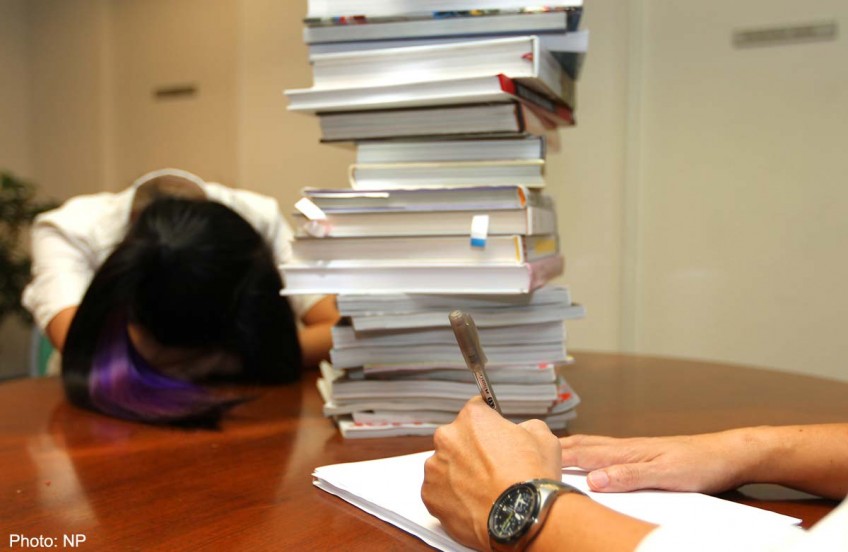Overseas student life not easy, say scholars

One goes to a Korean BBQ restaurant after a long night at the library. Another simply meditates.
These are some of the ways that past and present overseas scholars manage the stress of deadlines and exams.
The issue of pressure faced by Singaporean scholars overseas surfaced after A*Star scholar Ouyang Xiangyu, 26, was accused of poisoning herself and her classmates.
The second-year student at Stanford's School of Medicine had put paraformaldehyde (PFA) in her drinking water and her classmates' water bottles late last year.
PFA, commonly used in biology, is lethal if ingested in sizeable amounts.
Ouyang (inset) has pleaded not guilty by reason of insanity to four charges in a Californian court.
It is not known if she had been under immense pressure in school.
But Ouyang told the police that she had severe insomnia, dizziness, depression and a "disconnection from reality" since September last year.
Dr Lim Boon Leng, a psychiatrist in private practice, said such cases are "pretty extreme".
He added that those studying abroad and without a proper social support system are more vulnerable.
On condition of anonymity, overseas scholars told The New Paper what they had grappled with in their years abroad.
In his first semester, a 27-year-old who wanted to be known as Peter, fretted over how to hit the minimum Grade Point Average (GPA) of 3.7 required to keep his scholarship.
"I had no idea of how much effort to put in to get 3.7," he said.
Pointing out that one's grades were dependent on the cohort due to grade moderation, he said: "You have no idea how you are going to fare compared to the rest."
Peter, who combats his stress by visiting the nearest Korean BBQ restaurant with his friends, said things got better from the second year.
Sometimes, stress may also arise when students get competitive in trying to secure job or internship opportunities.
A 21-year-old undergraduate who wanted to be known as Wallace, said: "Many employers, such as banks and the big four audit firms, hold lots of information events and recruitment drives on campus.
"It can get quite competitive trying to secure internships with them. Often, it requires several rounds of assessments, essay writing and interviews.
"Some Singaporeans are keen on these internships as a good performance could lead to a job offer,'' he said.
Wallace sometimes turns to meditation to battle stress, though it "does not get too severe" for him.
A 25-year-old who wanted to be known as Anna, said: "I don't think (the stress) is that much different from what students in local universities face."
She keeps her friends in school and those in Singapore close so she does not buckle under stress. "You just need to make sure that you have a strong social support system," she said.
A 25-year-old who wanted to be known as Janet, said the ability to cope with stress depends on the individual's "personality and sense of security" to "take on the pressures and expectations of the scholarship".
She suggested going out for a breath of fresh air or watching television as ways to reduce stress.

This article was first published on April 3, 2015.
Get The New Paper for more stories.